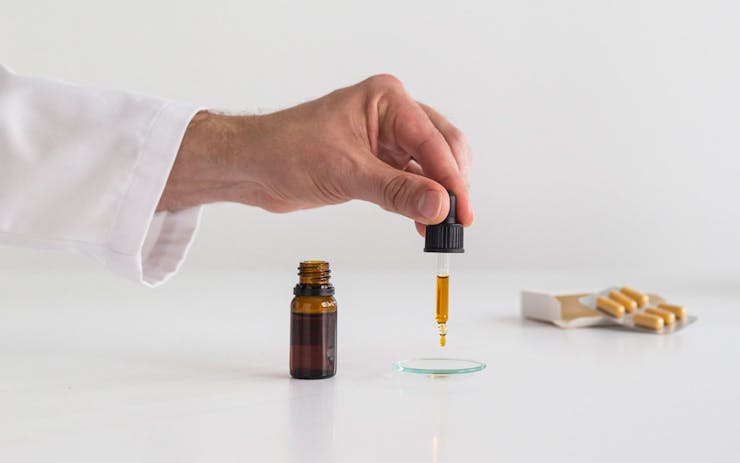CBD, short for cannabidiol, is a non-intoxicating compound produced by the cannabis plant that is popularly used for a variety of medical applications including pain, anxiety, and seizures. Although most cannabis varieties contain high levels of the euphoric compound THC, the plant can be bred to produce increased amounts of other compounds like CBD. Although CBD cannabis strains can be smoked in flower form, it is most commonly extracted from the plant and prepared into oils, edibles, and vape products.
“I prefer CBD strains like Harlequin, Remedy, and Canna-Tsu.”
“I usually start my day with a few drops of CBD oil in my tea.”
What is CBD?
CBD (cannabidiol) is one of many compounds in the cannabis plant. Cannabis contains dozens of known cannabinoids, which are compounds like THC and CBD that interact with a particular type of receptor in the body called “cannabinoid receptors.” Unlike THC, CBD is non-intoxicating, meaning it will not make the consumer feel high when consumed.
Although CBD does not deliver any kind of euphoric high commonly associated with cannabis, many who use CBD report feeling relaxed and less anxious. It can be prepared into long-lasting ingestible forms like drinks and edibles, or it can be vaporized or smoked for more immediate relief. Cannabis oils are extremely popular—these are commonly prepared as liquid extracts that can be dropped under the tongue or into food and beverages.
Benefits of CBD
In addition to relaxation and stress relief, CBD is being studied for a wide range of medical benefits. Some of the more well-studied applications of CBD include treatment of seizures, anxiety, and pain. Consumers may prefer a combination of THC and CBD as both cannabinoids have unique benefits to offer and may be more effective in treating certain symptoms like pain and insomnia. Consumers and CBD producers tout a variety of other medical benefits which are not as well studied.
Where to buy CBD
The availability of CBD products varies widely, depending on your local laws. CBD products containing less than 0.3% THC are listed on online retailers, although these products are not subject to lab testing or regulation. For this reason, you may want to consider buying CBD at a local cannabis shop or dispensary if you live in a state with legal cannabis. These retailers are typically tightly regulated with strict laws around testing products for potency and purity.
Some areas have cannabis laws that only allow the sale of CBD if it contains less than 0.3% THC. Oftentimes, these CBD products are created from hemp, a type of cannabis that produces almost no THC. However, hemp does not produce the same diversity or abundance of therapeutic compounds as other high-resin, CBD-rich cannabis varieties. For this reason, many consumers who live in areas with legal cannabis may opt for products in shops and dispensaries made from high-resin cannabis varieties.
